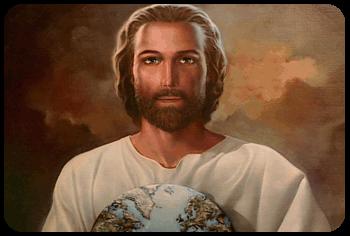|
KAREN, KARAYN OR KARIENG.
"I.--EXTENT AND STATISTICS.
THE Kareens, Karenes, or Careians, are a wild and
simple people, scattered over all parts of the
Bur-
man territories, and of the British provinces of Tenasserim: they are also
found in the Western portions
of Siam, and northward among the
Shyans. Their
residences are in the jungles and among the moun-
tains, and are most numerous on the mountains which separate
Burmah from Siam. The number
of
these people, owing to their nomadic habits and wide dispersion, is difficult
to be ascertained, but it
has been estimated at about 33,000.
II.--CHARACTERISTICS OF THE LANGUAGE.
The Karen language possesses several original elements, and
in many respects varies in genius and
structure from the Burmese,
Siamese, and
Peguese languages, though it freely borrows
words from
each. Its alphabet consists of twenty-four consonants, and eleven
vowels. It has five tones, some of
which appear different from those of any other monosyllabic tongue.
The Karen language is remark-
ably harmonious, and well adapted for poetry: a final consonant never occurs,
but every word terminates
with a vowel sound. Till a comparatively recent period, however, Karen
was totally unknown to
Europeans. About 1835, two mies. of the American
Baptist My. Society, Messrs. Wade
and Mason, acquired the language, and for the first time reduced it to
writing. For this purpose they
employed the Burmese alphabet, with a few additional characters to express
the peculiar sounds of the
language. The system of teaching reading, adopted by Mr. Wade, is so
admirably conceived, that
a person ignorant of a single letter can be taught to read a Karen book with
ease in a few weeks.
Mr. Mason affirms that the alphabetical powers of the Karen alphabet are of
Arabic or
Hebrew origin.
This fact, together with the personal appearance and physical
peculiarities of this singular people, and
a series of very remarkable traditions current from time immemorial among
them, has led him to form
the idea of their being descendants of the lost tribes of
Israel.
III.--VERSIONS OF THE SCRIPTURES IN THIS LANGUAGE.
The mies. were induced to undertake a
version of the New Testament in Karen by the
earnest and repeated entreaties of the people themselves for books. As
early as 1828, Mr. Boardman,
of the American Baptist Society, was visited frequently at Tavoy, one of the
my. stations, by
great numbers of the Karens, and had ample opportunities of preaching the
Gospel to them. Among
the most interesting of his visitors was a native chief, who appeared
particularly anxious for instruction
in the way of righteousness. "Give us books,"
he said, "give us books in our own native language!
then all the Karens will learn to read. We want to know the true
God. We have been lying in
total darkness--the Karen's mind is like his native jungle."
The translation of the entire New Testa-
ment into Karen was accordingly accomplished by Messrs. Wade and Mason; yet
during several years,
for want of adequate pecuniary means, no attempt was made at printing, but
each book as soon as
completed was copied and circulated in MS. In 1842, the American and
Foreign Bible Society
granted £625 towards the printing of the New Testament, and an edition
soon after issued from the
press at Tavoy, under the superintendance of Mr. Bennett. Mr. Mason
has since translated the Psalms
into Karen, including both the Sgau and Sho
dialects of that language. Of the New Testament in
Sgau Karen the American Mission Press at Maulmein issued 4000 (2nd edition
8vo.) in 1850.
IV.--RESULTS OF THE DISSEMINATION OF THIS VERSION.
This version of Scripture appears to have been attended in a
remarkable degree with the Divine
blessing from the very first period of its execution. The Karens were
in a manner prepared to welcome
Christianity, not only by their religious tenets, which formed a noble
contrast to
B_ddhism, but by a
singular prediction of their ancient seers, which caused them to look for
relief from Burman oppression
to "the white foreigners." In 1839, when the
Karens had no books, few living teachers, and only
a MS. copy of St. Matthew, they
were gathered together in considerable numbers from all parts by the
sound of the Gospel; and settling down in a district about two days' journey
from Tavoy, they formed
a Christian village, the heads of
every family being members of the church. Civilization followed
Christianity. Cleanliness (by no means a native Karen virtue) was
substituted for their former depraved
habits, and various industrial arts were learnt and steadily pursued.
The power of the Scriptures
upon these simple and unlettered people is shown by various anecdotes related
by the mies.
"Once Mrs. Wade had occasion to read the chapter in St.
Matthew about visiting Christ (as
represented in his disciples) when sick or in prison. They immediately
perceived how regardless they
had been of persons in sickness and sorrow, and began thenceforward to
perform services for the sick,
which they had never thought of before. A poor widow suffering under a
leprous disease, who had
a young child similarly afflicted, was visited by many the next day.
They performed various repulsive
offices for her and the child, brought water, cleaned the house, gave them
rice and other articles; and
so enriched and comforted the poor creature that she was bewildered with
delight. These attentions
they continued constantly. Another person, bedridden with loathsome
sores, was attended to in the
same way. Since that time no one has been suffered to want any thing
which the rest enjoy; and their
acts of kindness are done with studied concealment.""--The
Bible of Every Land. (1860, Second Edition) Samuel Bagster [Info
only]
|

